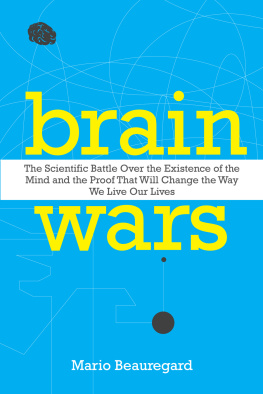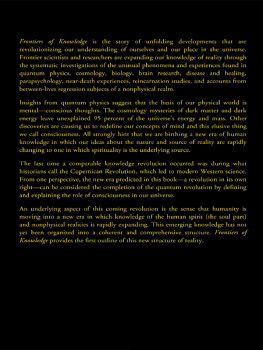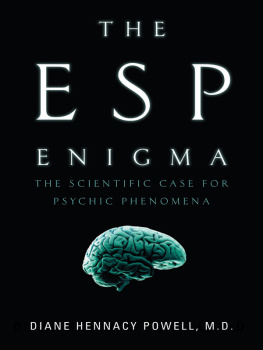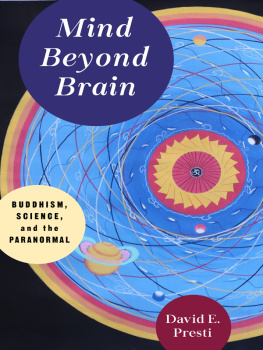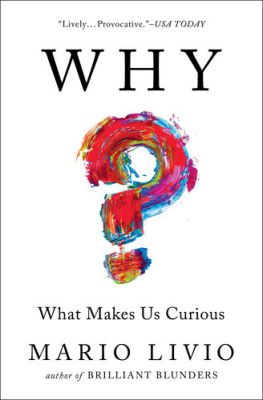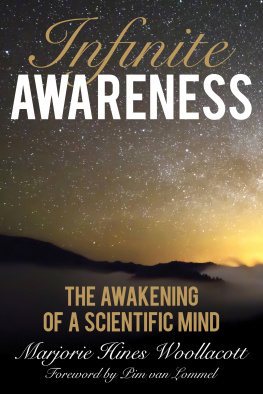I am very grateful to Bernardo Kastrup, the brilliant philosopher-scientist and Publisher of Iff Books (an imprint of John Hunt Publishing) for having recognized the value of Expanding Reality. I want also to thank the members of the support team at John Hunt Publishing Ltd. for their assistance and efficiency.
In addition, I am grateful to the scientists who have accepted to write endorsements for this book; in particular, I am indebted to Gary Schwartz, who has written the inspiring Foreword of Expanding Reality. Last, although many of them have left us, I cannot help but think of all those visionary scientists who helped lead us to the threshold of the next great scientific revolution.
ACADEMIC AND SPECIALIST
Iff Books publishes non-fiction. It aims to work with authors and titles that augment our understanding of the human condition, society and civilisation, and the world or universe in which we live.
If you have enjoyed this book, why not tell other readers by posting a review on your preferred book site.
Recent bestsellers from Iff Books are:
Why Materialism Is Baloney
How true skeptics know there is no death and fathom answers to life, the universe, and everything
Bernardo Kastrup
A hard-nosed, logical, and skeptic non-materialist metaphysics, according to which the body is in mind, not mind in the body.
Paperback: 978-1-78279-362-5 ebook: 978-1-78279-361-8
The Fall
Steve Taylor
The Fall discusses human achievement versus the issues of war, patriarchy and social inequality.
Paperback: 978-1-78535-804-3 ebook: 978-1-78535-805-0
Brief Peeks Beyond
Critical essays on metaphysics, neuroscience, free will, skepticism and culture
Bernardo Kastrup
An incisive, original, compelling alternative to current mainstream cultural views and assumptions.
Paperback: 978-1-78535-018-4 ebook: 978-1-78535-019-1
Framespotting
Changing how you look at things changes how you see them
Laurence & Alison Matthews
A punchy, upbeat guide to framespotting. Spot deceptions and hidden assumptions; swap growth for growing up. See and be free.
Paperback: 978-1-78279-689-3 ebook: 978-1-78279-822-4
Is There an Afterlife?
David Fontana
Is there an Afterlife? If so what is it like? How do Western ideas of the afterlife compare with Eastern? David Fontana presents the historical and contemporary evidence for survival of physical death.
Paperback: 978-1-90381-690-5
Nothing Matters
a book about nothing
Ronald Green
Thinking about Nothing opens the world to everything by illuminating new angles to old problems and stimulating new ways of thinking.
Paperback: 978-1-84694-707-0 ebook: 978-1-78099-016-3
Panpsychism
The Philosophy of the Sensuous Cosmos
Peter Ells
Are free will and mind chimeras? This book, anti-materialistic but respecting science, answers: No! Mind is foundational to all existence.
Paperback: 978-1-84694-505-2 ebook: 978-1-78099-018-7
Punk Science
Inside the Mind of God
Manjir Samanta-Laughton
Many have experienced unexplainable phenomena; God, psychic abilities, extraordinary healing and angelic encounters. Can cutting-edge science actually explain phenomena previously thought of as paranormal?
Paperback: 978-1-90504-793-2
The Vagabond Spirit of Poetry
Edward Clarke
Spend time with the wisest poets of the modern age and of the past, and let Edward Clarke remind you of the importance of poetry in our industrialized world.
Paperback: 978-1-78279-370-0 ebook: 978-1-78279-369-4
Readers of ebooks can buy or view any of these bestsellers by clicking on the live link in the title. Most titles are published in paperback and as an ebook. Paperbacks are available in traditional bookshops. Both print and ebook formats are available online.
Find more titles and sign up to our readers newsletter at
http://www.johnhuntpublishing.com/non-fiction
Follow us on Facebook at
https://www.facebook.com/JHPNonFiction
and Twitter at https://twitter.com/JHPNonFiction
Your worst enemy cannot harm you as much as your own thoughts, unguarded. But once mastered, no one can help you as much.
The Buddha
A Few Fundamental Dogmas in Neuroscience
Every human being religious, scientist or atheist needs to believe in something. In the case of atheists, they believe in nothingness after death, even though they hold no evidence of it. They also believe that God or a transcendent principle at the origin of the world does not exist. With respect to scientists and Science, and with science being a product of human activity, it is not immune to prejudices and dogmatic beliefs. This is particularly obvious when most scientists who work in a specific area of research embrace a dogma extensively. The impenetrable truth status attached to Darwinism in biology proves the impact that such a phenomenon can have.
For more than a century, neuroscience researchers have believed that new neurons could not develop in the adult human brain we were born with a maximum number of neurons, and this would only dwindle throughout our life. Neuroscientists also believed that the adult brain was a static machine that did not have the ability to change. However, in recent decades, this dogma has been cast aside in light of several studies that have convincingly shown that parts of the human brain, as well as many animal species, retain the ability to produce new neurons throughout adult life. According to these studies, contrary to what we thought, the adult human brain is very plastic. Indeed, it constantly alters its structure and function by creating new neurons and synaptic connections between neurons. In addition, in the mature brain, existing neural networks are constantly reorganized, and new networks are developed. This neuroplasticity indicates that we are not prisoners of the brain we inherited at birth.
As mentioned in the introduction, another fundamental dogma in neuroscience, one that remains influential, is the idea that all mental events, consciousness and the self are simply reducible to the physical and biological processes of the brain. In this regard, different materialist theories have tried to explain how the brain produces the mind. One of them is the theory of psychophysical identity. This theory claims that we comprehend our mental processes and our consciousness in the first person, that is, from within and subjectively (I feel happy.); while with neuroscience techniques, our brain activity is measured in the third person, that is externally and objectively (My brain releases more serotonin when I am happy.). In other words, mental events and brain events are perfectly parallel, like two sides of the same coin. However, it is brain states, electrical impulses, and chemical reactions in our brain that create mental states, not the other way around. Most contemporary neuroscientists stand by this view, including Gerald Edelman and Jean-Pierre Changeux.
Eliminativism is another prominent materialist theory about the relationship between mind and brain. The philosophers Paul and Patricia Churchland, as well as Daniel Dennett, are illustrious supporters of this radical theory that denies the existence of mental events: our mental world is just an illusion, and we are only imagining having sensations, memories, emotions and thoughts. Eliminativism recognizes only the biophysical processes of the brain. It posits that mind, consciousness, ego, and free will are prescientific concepts that stem from naive and simplistic ideas belonging to popular psychology. Proponents of this theory hope that these concepts will soon be eradicated thanks to advances in neuroscience. As to


